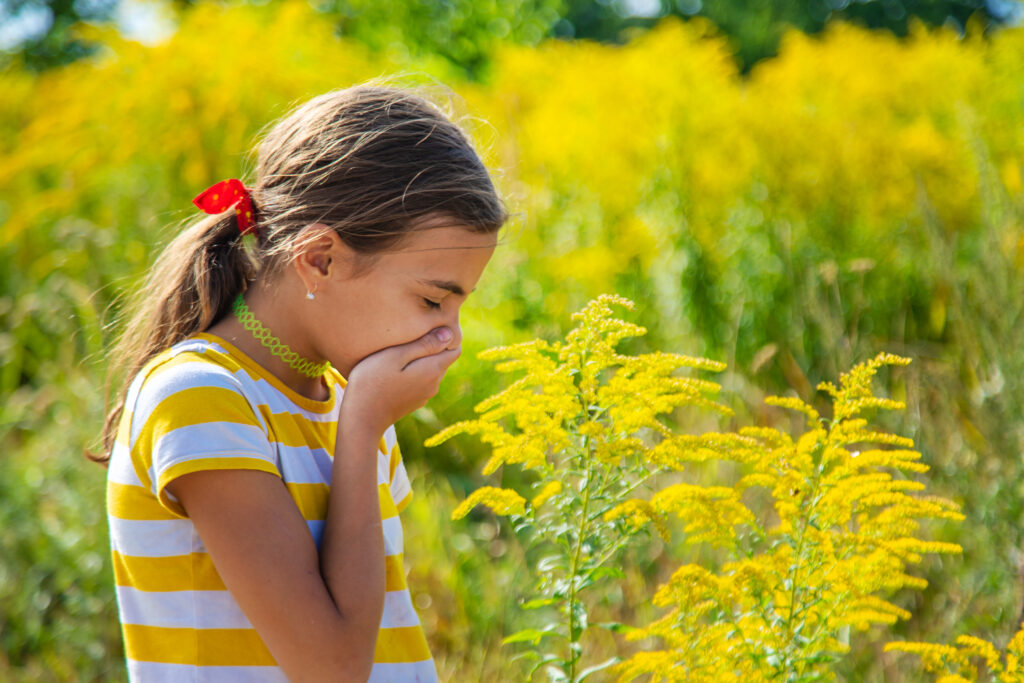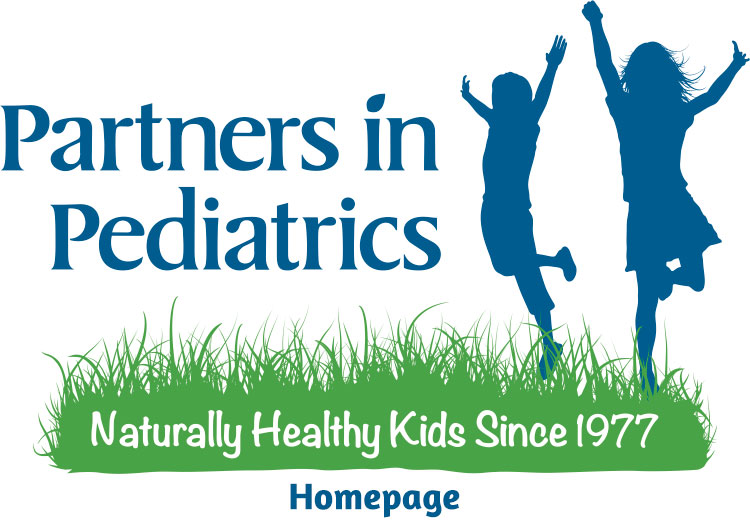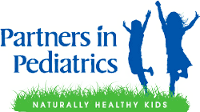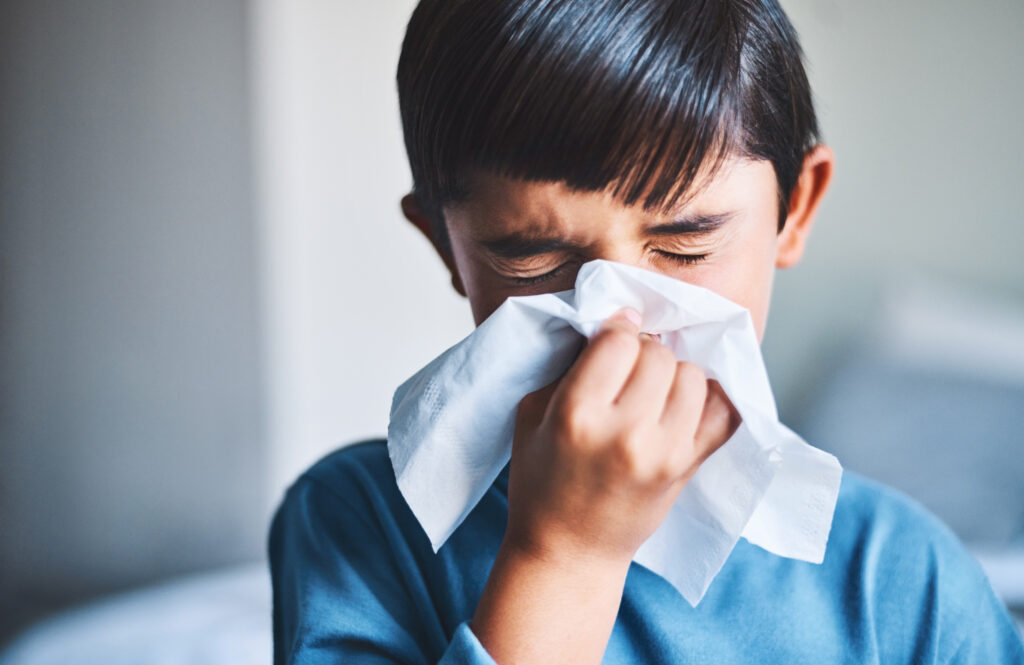 As winter fades away and spring takes its place, many welcome the change in seasons — unless, of course, you or your kids suffer from seasonal allergies. With the return of warm weather and longer days your children probably want to spend more time playing outside. But if they suffer from seasonal allergies you might worry about exposing them to allergens.
As winter fades away and spring takes its place, many welcome the change in seasons — unless, of course, you or your kids suffer from seasonal allergies. With the return of warm weather and longer days your children probably want to spend more time playing outside. But if they suffer from seasonal allergies you might worry about exposing them to allergens.
Differentiating between a cold and allergies can be challenging, but key indicators of the latter include the absence of fever, itchy eyes, frequent sneezing, and a duration of more than a few days.
Fortunately, there are straightforward measures you can take to alleviate the symptoms of hay fever for yourself or others in your household who may be affected.
Signs of Seasonal Allergies
For most children, seasonal allergies are more annoying than serious. The typical symptoms of seasonal allergies, which occur when pollen enters the eyes, nose, and lungs, include a runny nose, coughing, sneezing, nasal congestion, and watery or itchy eyes. These allergies usually manifest as symptoms like:
- Itchy, watery, or burning eyes
- Nasal congestion
- Sneezing
- Watery nose
- Throat clearing/post-nasal drip
- Coughing
- Difficulty breathing
Parents should also pay attention to less common symptoms such as chronic ear and sinus infections, snoring, and mouth breathing. If these symptoms persist, it’s a good idea to consult your pediatrician or an allergist to make sure there isn’t a more serious allergic reaction causing these less typical problems.
On-going allergy symptoms can impact a child’s quality of life. Experiencing these symptoms on a regular basis can interrupt sleeping habits, making it more difficult to focus during the day or in school.
Avoiding Seasonal Allergies
While there’s no cure for seasonal allergies there are several ways that caregivers can decrease allergen exposure. Among the best ways to treat seasonal allergies in children is to eliminate or at least reduce exposure to allergy triggers. Here are some ways you can do that:
- Keep windows in schools, homes, and cars closed on days when the pollen count is high.
- Use air conditioning or oscillating fans to promote airflow and to keep pollen away while indoors.
- Remove and wash clothes worn outside to keep pollen from getting indoors (since pollen can be tracked indoors on clothing).
- Shower after outside play which can ensure pollen on skin and hair doesn’t create an allergic reaction.
- Follow weather reports for a daily pollen count that may affect the number and severity of allergic reactions your child experiences.
- Avoid recess sports and outside play when pollen is high.
Wash up and change when you get home.
When you come indoors, you unknowingly bring pollen with you. It’s important for allergy sufferers to change clothes and wash their hands and face after coming inside. However, it’s a good practice for everyone to do the same, since anyone could be carrying pollen.
It’s essential to minimize pollen in your home as much as possible, especially in the bedroom where your child spends most of their time. Consider keeping your child out of their bedroom during the day and relocating toys to another area. Encourage them to bathe before bedtime to reduce pollen exposure.
Be thoughtful about outside time.
As healthcare providers, we highly encourage outdoor activities for kids. Being active, enjoying sunshine (with appropriate SPF), and exploring nature contributes to their overall well-being. However, if your child has allergies, it’s crucial to take extra precautions before heading outdoors to minimize allergy symptoms.
Many weather websites and apps provide local pollen counts; it’s helpful to check them when planning outdoor activities. Since you can’t keep your child indoors until allergy season passes, try to avoid dry and windy days or areas with abundant plant life, as these conditions tend to exacerbate allergy symptoms.
Consider medication if symptoms persist.
Many children find relief from allergies through home treatments, while some may need more aggressive approaches like prescription medications and environmental adjustments. Depending on your child and the severity of their allergies, there are various over-the-counter and at-home remedies that can offer relief during allergy season.
Over-the-Counter Treatments
- Glucocorticoid nasal sprays – Fluticasone (Flonase) and mometasone (Nasonex) are the most effective single-agent maintenance therapy for allergic rhinitis. Flonase Sensimist and Nasonex can be used in children as young as 2 years old. Flonase Allergy Relief can be used in children as young as 4 years old. These nasal sprays are effective when used daily for several weeks. Recommend talking with your pediatric healthcare provider before using these nasal sprays for more than two months out of the year.
- Second-generation oral antihistamines – Antihistamines typically reduce itching, sneezing and runny nose but are less effective for nasal congestion compared to glucocorticoid nasal sprays. Second-generation oral antihistamines such as cetirizine (Zyrtec) and loratadine (Claritin) are preferred to diphenhydramine (Benadryl) because they are less sedating. They can be administered regularly or as needed.
- Antihistamine eye drops – Olopatadine (Pataday) can be used to treat children 2 years and older with allergic conjunctivitis whose symptoms are not fully controlled with a glucocorticoid nasal spray.
- Nasal saline drops – Administer 2 drops into each nostril for a few minutes and then have your child blow their nose to clear the mucus. For younger children, suction away mucus with a bulb syringe or nose frida. Repeat this process as needed but be cautious not to overdo it—3 to 4 times per day is sufficient. Over-suctioning can lead to rebound congestion, making congestion worse.
The development of allergy symptoms requires repeated exposure to the allergen and is less prevalent in children under two years of age. It is safe to use nasal saline to help clear nasal congestion in children of all ages. Recommend evaluation by your pediatric healthcare provider prior to starting allergy medication for children less than two years old.
Herbal Remedies
Valerian root is a gentle herbal sedative that could provide relief for a restless or itchy child. It may be most effective when used at bedtime. Be sure to follow the dosing instructions on the package accurately for the best results.
If you follow the above suggestions, chances are your allergy-sufferer will feel better — and when kids feel better, parents do too. But, if symptoms persist, contact your healthcare provider for additional support.
How and when can my child be diagnosed with seasonal allergies?
Families can address allergies in two ways: waiting until symptoms become bothersome for the child or being proactive by taking them to a physician for allergy testing. Both approaches involve a simple procedure called skin testing, where the child is tested for various allergens based on their medical history and symptoms. This test is done quickly in the doctor’s office and is safe even for children as young as 6 months old.
After the skin testing, the doctor can diagnose allergies and create a treatment plan accordingly. Families can opt for proactive allergy testing at any time during childhood, but it’s important to consider factors like exposure and duration. Allergies typically show symptoms between ages three to five, while children younger than three may not have developed the antibodies that react to outdoor allergens yet. Understanding a child’s specific allergic profile may take a few seasons to fully grasp.
Can a child outgrow seasonal allergies, or can they appear later in adolescence without prior history?
Allergies can develop at any time, even well into adolescence and adulthood. Most children who have allergies in childhood vary in severity and are dependent on many variables: the type of allergies the child has, the exposure to those triggers, response to medicines, among others.
Most children will not outgrow allergies, but the course and progression can vary. If a child continues to have allergic symptoms despite some level of intervention, then additional testing may be needed.
Conclusion
In conclusion, seasonal allergies can significantly impact children’s quality of life, affecting their sleep, concentration, and overall well-being. However, by understanding the symptoms, implementing preventive measures, and exploring various treatment options, parents can help alleviate their child’s discomfort and enjoy the beauty of each season with fewer interruptions. Whether through simple home remedies, over-the-counter medications, or consultation with healthcare professionals, there are plenty of strategies available to manage seasonal allergies effectively. By staying informed and proactive, parents can empower themselves to support their children in thriving despite the challenges of allergies, ensuring they can embrace the joys of childhood all year round.
Who We Are
At Partners in Pediatrics, we have been caring for generations of Colorado children for over 4 decades and are passionate about what we do. We believe in “whole person health,” — aiming to help patients and families improve and restore their health in many ways — biological, behavioral, social, and environmental. Helping you and your family live a fun-filled and active lifestyle is one aspect of that care!
We are holistic pediatricians and healthcare providers dedicated to educating the Mile High City on functional wellness and health care topics. Our mission is to offer your family exceptional pediatric care through integrative medicine and a holistic approaches. This approach integrates conventional and evidence-based medicine with anticipatory guidance centered around nutrition, sleep, and behavior. Additionally, when suitable, we provide support and guidance on alternative treatments to ensure comprehensive care for your child’s well-being.
Please get in touch with our team of integrative pediatricians with any questions about your child’s health care. If you’re in need of more comprehensive advice, please contact our team serving the Denver metro area, Littleton, City Park, Cherry Creek, downtown Denver, and the surrounding areas of Colorado.





Leave a Reply